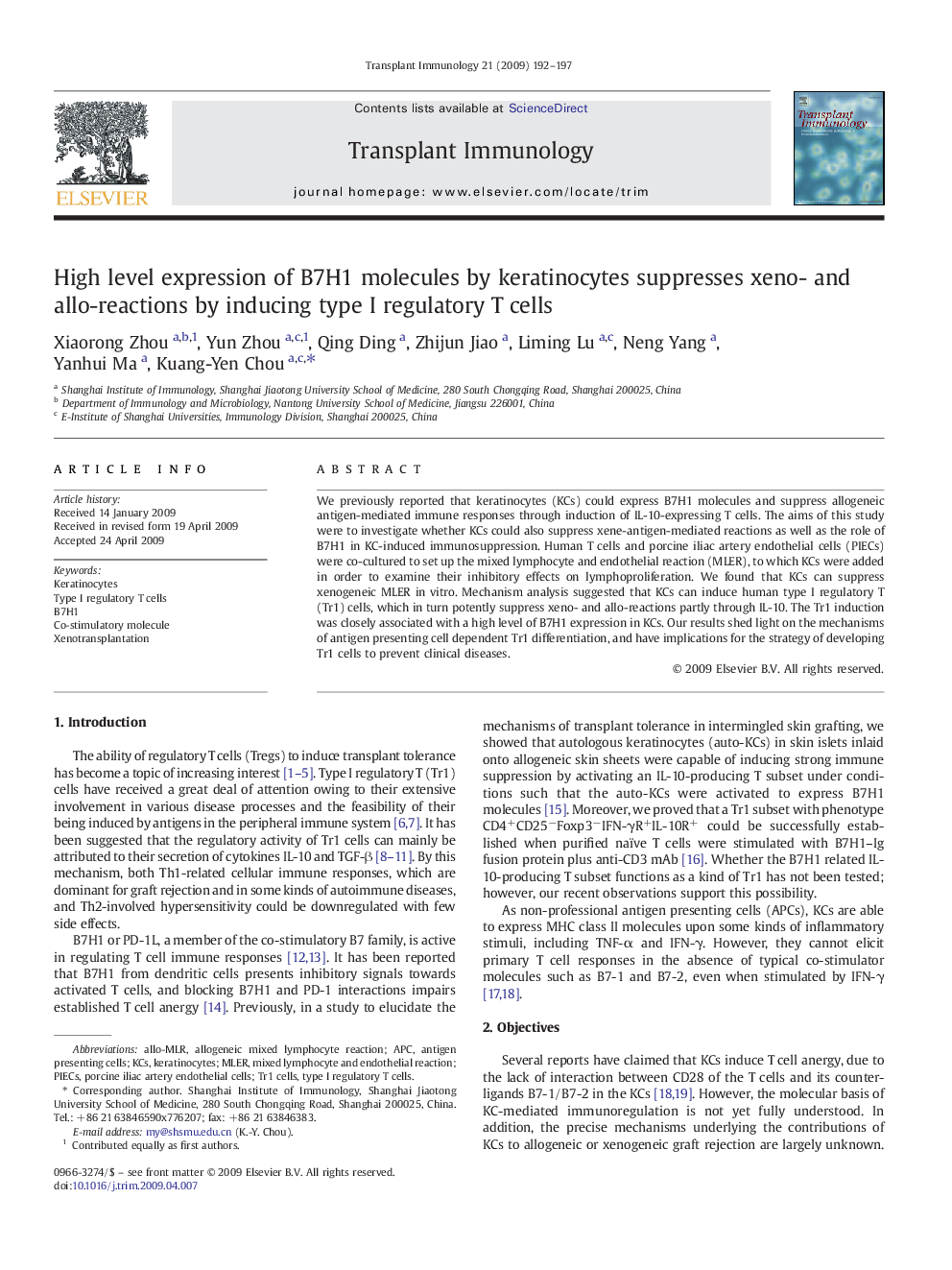| Article ID | Journal | Published Year | Pages | File Type |
|---|---|---|---|---|
| 3392373 | Transplant Immunology | 2009 | 6 Pages |
We previously reported that keratinocytes (KCs) could express B7H1 molecules and suppress allogeneic antigen-mediated immune responses through induction of IL-10-expressing T cells. The aims of this study were to investigate whether KCs could also suppress xene-antigen-mediated reactions as well as the role of B7H1 in KC-induced immunosuppression. Human T cells and porcine iliac artery endothelial cells (PIECs) were co-cultured to set up the mixed lymphocyte and endothelial reaction (MLER), to which KCs were added in order to examine their inhibitory effects on lymphoproliferation. We found that KCs can suppress xenogeneic MLER in vitro. Mechanism analysis suggested that KCs can induce human type I regulatory T (Tr1) cells, which in turn potently suppress xeno- and allo-reactions partly through IL-10. The Tr1 induction was closely associated with a high level of B7H1 expression in KCs. Our results shed light on the mechanisms of antigen presenting cell dependent Tr1 differentiation, and have implications for the strategy of developing Tr1 cells to prevent clinical diseases.
